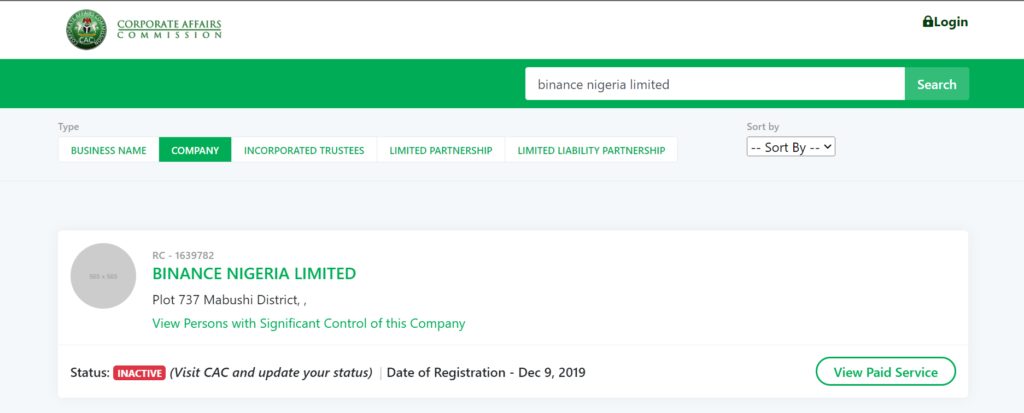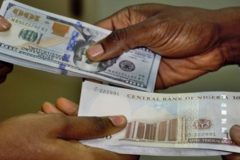Nigeria’s financial regulator, the SEC, banned the wrong Binance last week. How was the entity registered without any connection with the global crypto company?
Last week, Nigeria’s Securities and Exchange Commission (SEC) directed Binance Nigeria Limited (BNL) to immediately stop soliciting Nigerian investors in any form whatsoever. According to its circular, the financial regulator said the entity “is neither registered nor regulated by the Commission and its operations in Nigeria are therefore illegal”. At the time, news reports mistook the company for a subsidiary of Binance, the world’s largest cryptocurrency exchange.
Already embroiled in regulatory challenges in the United States, the Netherlands, Canada, and Australia, it seemed that Nigeria’s financial regulator had extended the same scrutiny to Binance. However, on Sunday, Changpeng Zhao, the founder of Binance, called Binance Nigeria Limited a “scam entity” and said that Binance had issued a cease & desist notice to the company.
According to public documents, a lawyer, Ahassan Ifzal Mughal, is responsible for registering Binance Nigeria Limited. Although BNL was called a scam by Zhao, Mughal said that he has not been up to anything sinister with Binance Nigeria Limited and confirmed that the company is not affiliated with Binance. He said that he registered the company in the hopes that he could sell the incorporated name to Binance.
“We are willing to hand over full control of Binance Nigeria Limited to binance.com should they choose to legally enter into the Nigerian market, and are further available to provide our legal services to them in obtaining legal regulatory compliance in Nigeria,” Mughal told DL News. A search on Nigeria’s company registry shows that BNL was registered in December 2019 and is currently “inactive”. This contradicts the SEC’s circular, which states that BNL had been “soliciting the Nigerian public to trade crypto assets on its various web and mobile-enabled platforms”.

What are the legal implications?
In isolation, what Mughal planned to do is not illegal. There are no records of a website or app for Binance Nigeria Limited, and Mughal asserts that he only registered the company to sell the name to Binance. His actions can only be considered illegal if he intended to establish a connection to Binance by either marketing or operating in the same field, and this would be considered a fraudulent misrepresentation.
However, this episode brings to light how lax Nigeria’s laws are when it comes to registering companies. “I think this would be a great time for us to make our regulatory agencies more circumspect in the registration of companies because it is very interesting that Mughal did not need to prove a connection to Binance,” Zikora Okwor-Wewan, a partner at Springwoods LP, told TechCabal.




















